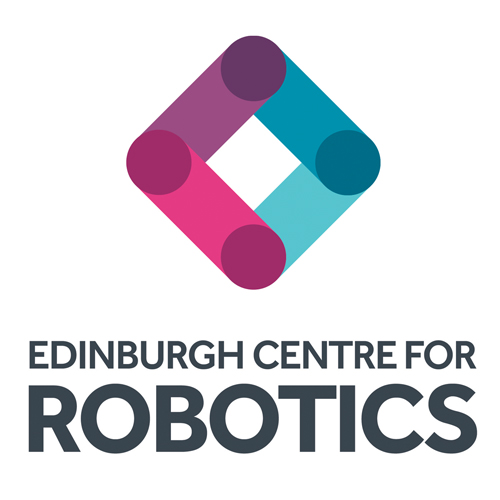Abstract
Studies of a robotic system start usually with modeling the underlying configuration space and then using properties of the space for analysis and/or synthesis/design/control of the system. Traditionally, local (Euclidean) properties of the spaces and calculus on R^n are been used for these studies. More than 30 years ago, Roger Brockett introduced Lie group theory for global studies of robot kinematics. This effort was continued and expanded by Sastry’s group at Berkeley and a number of other prominent researchers in the robotics community. In this talk, I will present major achievements and progresses of this research program. First, I will review the basic concepts of differentiable manifolds and Lie group theory and then show how (unified) geometric models can be developed for robotic systems such as rigid body motion, open-chain and closed-chain manipulators, multi-fingered hand grasping and manipulation, bio-mechanic systems and robot calibration, and for manufacturing research problems such as workpiece localization and tolerancing formulation and verification. Finally, I will highlight how geometric properties of the modeling spaces and the corresponding calculus tools can be exploited for more efficient solutions of the underlying optimization problems.
From a different perspective, I will describe a few other innovations we introduced into our curriculum program that filled in the missing gap for commercialization of our research. Over the last 20 years or so, several startups, including Googol Technology, a leading motion control company in China, DJII, a global leader in drones products and Lie Group Automation (or QKM), a provider of innovative robot solutions to the massive C^3 (Computers, Communication and Consumer products) manufacturing industry in China, have spun off from my lab. Burrowing from L. Page’s words, I credit this effort to “Geometry as inspiration”.
Rapid prototyping and fast scaling ups are essential for any robotic startups to succeed. We benefited greatly from the amazing manufacturing eco-system of the Pearl River Delta (PRD) region (also known as the Hollywood of Makers) and believe that this resource is also sought-after by robotic startups elsewhere. We established the Songshan Lake Xbot Park, a startup facility at the heart of the PRD region to assist entrepreneurs of our community. I will highlight some key features of the SSL Xbot Park.
Short biography
Zexiang Li attended the South-Central University in 1978, received his BS (with honor) degrees in Electrical Engineering and Economics from Carnegie-Mellon University in 1983, his MS degree in EECS in 1985, MA in mathematics and PhD in EECS in 1989, all from the University of California at Berkeley. He worked at ALCOA, the Robotics Institute of CMU and the AI Lab of MIT (89-90). He was an assistant professor at the Courant Institute of New York University (90-92). In 1992, he joined the Department of Electronic and Computer Engineering of the Hong Kong University of Science and Technology and is currently a professor of the department. He founded the Automation Technology Center (ATC) and the Robotics Institute (RI) of HKUST.
Zexiang Li received the ALCOA Foundation Fellowship in 1979, and the E. Anthony Fellowship in 1983. He was a recipient of the University Scholar award from CMU in 1983, the E.I. Jury award from UC Berkeley in 1989, the Research Initiation award from NSF (US) in 1990, the Outstanding Young Researcher award (Class B) from NSF China in 2000, the Natural Science award from China in 1997, and the IEEE RAS Field award in 2019. He became an IEEE Fellow in 2008.
Zexiang Li served as a panel member of the Hong Kong Research Grants Council (RGC), an overseas member of the Natural Science Foundation of China (NSFC), and an associate editor for the IEEE Trans. on Robotics and Automation. He was the general Chair for the 2011 IEEE International Conference on Robotics and Automation (ICRA).
Zexiang Li's research areas of interests include multifingered robotic hand, parallel manipulators, workpiece localization and inspection, motion control, precision assembly, and unmanned aerial vehicles (UAVs). He is the author of more than 100 journal and conference papers, and four books, including A Mathematical Introduction to Robotic Manipulation (CRC Press 1993), and Nonholonomic Motion Planning (Kluwer 1994).
Zexiang Li co-founded several companies with his colleagues and students from the Automation Technology Center, including Googol Technology, a leading motion control company in China, DJI, a global leader in drones products, Lie Group Automation (or QKM), ePropulsion, the Songshan Lake Xbot Park, the Clearwater Bay Venture Capital and the Hong Kong X-tech startup platform.

